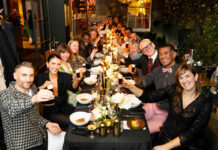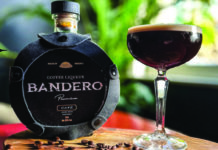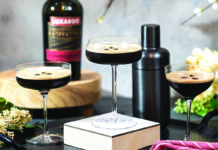There is room for growth in on-trade tea and coffee, firms say
Hot beverages have become a more important product for the licensed trade in recent years, providing an additional revenue stream and helping bars and pubs to compete with daytime rivals such as coffee shops and cafés.
But it seems that there’s still plenty room for growth.

Quoting figures from Allegra Strategies, Lawson Mountstevens, managing director of pub company Star Pubs & Bars, said around 8000 venues across the UK are currently selling coffee, which is predicted to rise to 21,000 outlets by 2020.
And according to Allegra, 3.6 million cups of coffee are sold by Britain’s pubs every day, with this also expected to increase in the years ahead.
“With coffee returning as much as 90% gross profit, it’s a must for pub operations,” said Mountstevens.
“In addition to increased profit, coffee extends trading hours and increases food sales, be it breakfast or snacks.
“Breakfast is a key coffee sales opportunity and offers pubs the chance to tap in to the growing food-on-the-go market.”
Selecting the right equipment and products is vital, and can vary from outlet to outlet.
Mountstevens advised licensees to think carefully about the volume of coffee they might expect to sell before investing in any kit.
“Operators should consider what coffee machine is most practical given the amount of space available to them,” he said.
“The machine has to be robust to withstand heavy usage, should match their offer and be capable of delivering forecasted volumes.
“A top-of-the-range coffee machine, for example, would not be appropriate in a wet-led community pub.”
The equipment can also help determine the level of staff training required in the outlet.
While firms suggested putting staff through at least a basic level of training, some modern machines are so advanced they are said to remove the need for in-depth staff knowledge.
“Modern bean-to cup machines offer the ideal solution as you can get close to barista quality using relatively unskilled staff,” said Justin Stockwell, managing director of Caffeine Ltd.
“As the technology continues to develop, it’s getting easier for operators to offer a more complex coffee menu.”
And a reasonably complex menu is important, said Stockwell, as consumers become more knowledgeable about the various styles and flavours of coffee.
“Customers are increasingly looking for good quality and variety when it comes to on-trade coffee,” he said.
“As coffee consumers become more aware of what is available and what they like, there is a greater demand for a wider range of coffees, including iced coffees and flavoured coffees.
“Specialist coffees are increasingly popular.”
Post-purchase care is another important factor to consider when planning which hot beverage equipment and products to buy.
Mountstevens advised licensees to think about the “level of support, training and maintenance required” for any machinery.
And Conal Lavery of coffee and tea supplier Thomson’s said after-sale product training is an equally-important consideration for operators.
“At Thomson’s we advise operators to look at the quality of the overall support they can expect from their coffee supplier,” said Lavery.
“Can they expect individually tailored coffee training that fits in with their business? And not necessarily a one-size-fits-all approach designed for national customers.
“Does your coffee supplier roast themselves and is freshness important? Are roastery tours available to educate and enthuse your teams?”























